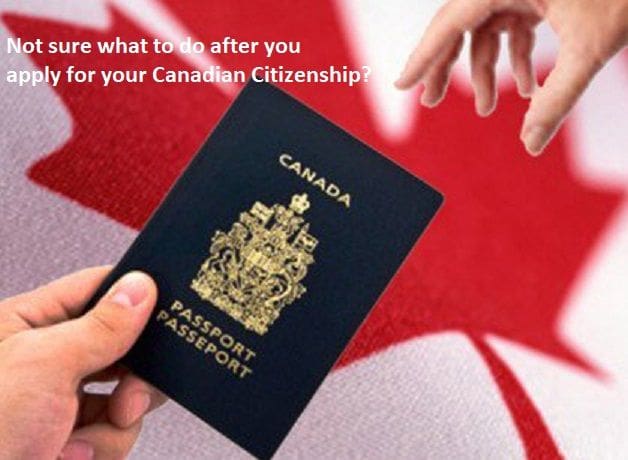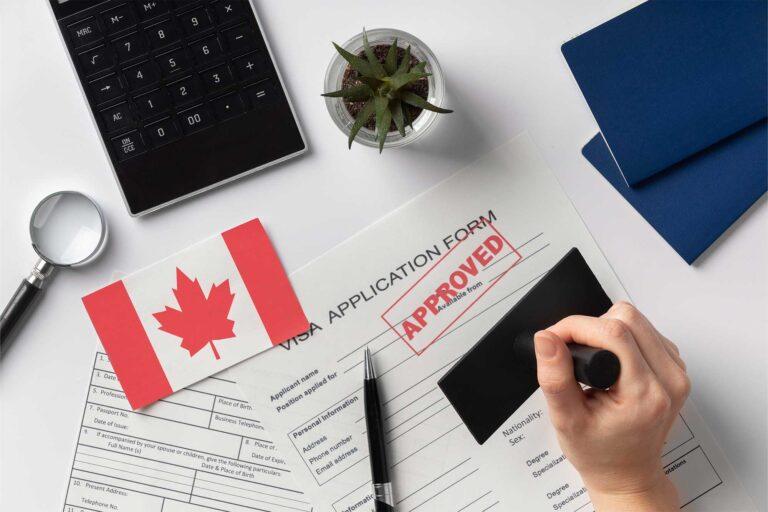After You Apply for Canadian Citizenship
Applying for Citizenship
One of the most important things for your Canadian citizenship application is your residency obligation (being physically present in Canada for at least 1095 days). If you meet the residency obligation, you will need to meet some other requirements to apply. Some of the requirements include:
- Permanent Resident status
- Income tax filing
- Language skills
- How well you know Canada
- Prohibitions
These requirements are in place to see how well you fit into Canadian society and to prove your loyalty to Canada. After having filled out the application and paid the processing fee, your only job left is to wait for the government to respond to your application. In this article, we will discuss what happens after you apply for Canadian citizenship and how to prepare for the citizenship ceremony.
After Applying for Citizenship
The IRCC will contact you by email or Post mail a few times after you apply for citizenship to:
- let you know they’ve accepted your application for processing
- give you a link to the study guide “Discover Canada: The Rights and Responsibilities of Citizenship” or send you a paper copy
- ask you for any missing information (if you have not completed application)
- if you’re between the ages of 18 and 54, invite you to your citizenship test and interview, and tell you what documents you’ll need to bring
- invite you to your citizenship ceremony if your application is accepted
The Citizenship Test
The test is to demonstrate how well you know Canada. It is usually written, but you may also be asked to come for an interview with a citizenship officer.
During the test or the interview, the test will ask you questions about Canadians’:
- rights
- freedoms
- responsibilities
- democracy
- society and ways to take part
- physical and political geography
- social and cultural history and symbols
- political and military history
After receiving your test date and time, you should come prepared to the test with the proper documentation required.
When you come for your test, bring:
- the original documents you attached to your application
- any passport or travel documents you used in the five years before you applied
- Your test may be written or oral. The test is based on a number of things. For example, if you have trouble reading and writing in English or French, you will have an oral test.
An oral test is given by a citizenship officer in an interview hearing.
Application Rejection
There are certain reasons which may make the IRCC not accept your application, the IRCC will stop processing your application and will not make a decision if you don’t:
- submit the documentation they requested from you
- provide them with a reasonable explanation for not showing up on your citizenship test/interview date, hearing with a citizenship officer or a citizenship judge, or your citizenship ceremony
If this happens, they’ll send you a message to explain why your application was rejected. You’ll have to submit a new citizenship application and pay the fees again.
If you withdraw your application, you can be eligible for a partial refund.
If the IRCC don’t approve your application for citizenship, they’ll send you a letter explaining why and what options you can take.
Staying Eligible until ceremony
In order for you to take the oath and become a citizen, you must refrain from illegal activity and make sure that your requirements will be met by due time. To take the Oath of Citizenship, you must meet all of the requirements for citizenship until the time you take your citizenship Oath.
After your application is approved, you may not be able to take the Oath if you:
• lose permanent resident status
• have been issues a removal order
The Citizenship Ceremony
The citizenship ceremony is the final step to becoming a Canadian citizen. The ceremony is meant to welcome you as a new member of Canadian society and to assure your allegiance to the Country of Canada and her majesty the queen.
During your ceremony, you will:
- take the Oath of Citizenship
- get your citizenship certificate
- sign the Oath or Affirmation of Citizenship form
you will be sent a ceremony notice if you meet all of the conditions to:
- become a Canadian citizen or
- get your Canadian citizenship back
The notice will tell you when and where the ceremony will be held. The ceremonies take place all across the country and at all times of the year. Community groups often host the ceremonies.
What to bring to the Ceremony
Adults and children aged 14 or over must go to the citizenship ceremony and take the oath.
Parents will receive certificates of citizenship for their children under age 14. Children under age 14 don’t have to go, but are allowed to come.
You must bring your ceremony notice and all your original immigration documents, including your:
- permanent resident card if you have one (even if it is expired)
- Record of Landing if you became a permanent resident before June 28, 2002
Contact Akrami & Associates
Applying for Canadian citizenship may be difficult for some individuals, as it might be confusing to calculate the residency obligation. Doing this alone may leave you confused, frustrated and may lead to a failed citizenship application process. It is highly recommended that you seek assistance in a process as difficult as obtaining Canadian Citizenship. Akrami and associates can find a way for you to overcome the difficult process and help you become a Canadian citizen. If you or someone you know is attempting to become a Canadian citizen but is struggling, contact us at our office number: (416) 447-2545. We can provide legal assistance or consultation with an immigration professional for you or your loved ones.
With Akrami & Associates, there is always a way!
Latest Immigrations News

December 5, 2025
THE ULTIMATE GUIDE TO HUMANITARIAN & COMPASSIONATE (H&C) APPLICATIONS IN CANADA
THE ULTIMATE GUIDE TO HUMANITARIAN & COMPASSIONATE (H&C) APPLICATIONS IN CANADA Understanding When, Why, and How to Apply for Permanent Residence on Humanitarian Grounds What Is an H&C Application? A Humanitarian and Compassionate (H&C) application is a last-resort pathway for individuals who are in Canada and do not [...]

September 11, 2025
Canada Super Visa: Step-by-Step Guide for Parents and Grandparents
For many Canadian citizens and permanent residents, bringing parents or grandparents to Canada for extended visits is more than just a wish, it’s a heartfelt need. While most people first consider the traditional visitor visa, there is another option designed specifically for family reunification: Super Visa applications. [...]

August 23, 2025
Intra-Company Transfer (ICT) Work Permit, Your Complete Guide to Working in Canada
For multinational companies, moving key talent across borders is often essential for growth and operational success. The Intra-Company Transfer (ICT) Work Permit provides a streamlined pathway to bring experienced employees to Canada without the time-consuming Labour Market Impact Assessment (LMIA) process. For foreign professionals, it’s more than [...]

Book a Conslutation
One of our Representatives will
assist you with your matter. Book Now!
Click here

Call us for
more Information
+1-416-477-2545
Toll Free: 1-877-820-7121
Click here

Write Us (Online Form)
Complete our form and one of our
Representatives will contact you.
Click here
Subscribe To Our Newsletter





